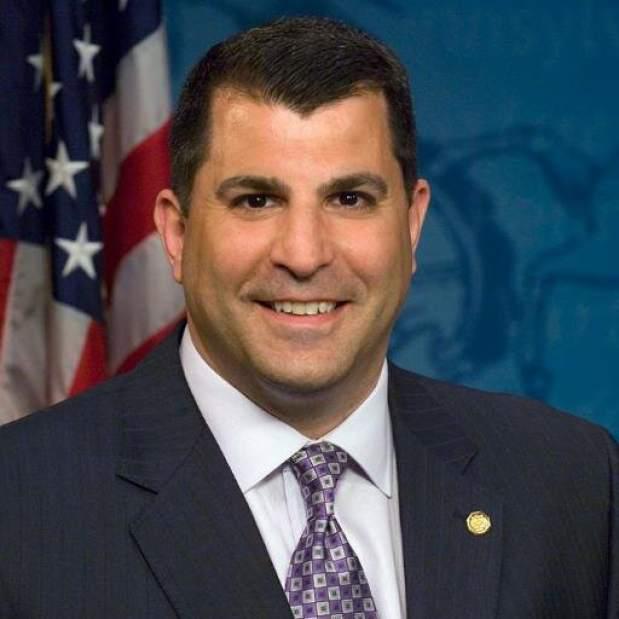|
Clergy inquiry includes 6 dioceses
By Debra Erdley
Child abuse experts and victims' advocates hope an expanding grand jury investigation into allegations of clergy sexual abuse extends the statute of limitations on such crimes. The investigation has sought records from six Catholic dioceses in Pennsylvania, including those in Greensburg and Pittsburgh. Officials in both dioceses have confirmed they complied with subpoenas from state Attorney General Bruce Beemer seeking church records dating back more than half a century. State Rep. Mark Rozzi, D-Reading, who has gone public with his abuse as an altar boy, said he testified before the grand jury in Pittsburgh on Aug. 17. He was prime sponsor of a bill that would have extended the statute of limitations for civil and criminal actions against accused clergy in Pennsylvania. It passed by a 185-14 vote in the House, only to die in the Senate Judiciary Committee after facing questions about its constitutionality and being watered down. “When I went out there to testify, I thought it was going to be about my own personal story of abuse,” Rozzi said. “But then they also asked questions about the influence of the Catholic Church and the Insurance Federation on certain legislators who had voted a certain way.” Several Eastern Pennsylvania lawmakers complained that they had been targeted by the church for their support of the bill, and published accounts of hearings on the bill noted that the Insurance Federation of Pennsylvania lobbied vigorously against it. The church also is on record against it. Rozzi vowed to bring the bill back to the floor this fall and reinsert its original provisions. Marci Hamilton is a former law professor who is a University of Pennsylvania scholar and CEO of Child USA, a think tank devoted to children's issues. She said the expanded grand jury probe could help Rozzi's cause. “The more there is public information about the abuse in a valued institution, the more likely it is that the Legislature will actually do something to protect our children,” Hamilton said. Other states have extended or eliminated the statute of limitations in such cases. That is an important step, because studies have shown most victims don't come forward until well into adulthood or even middle age, Hamilton said. The probe of allegations of clergy sexual abuse and cover-ups follows a March 2016 state grand jury report that detailed widespread allegations of abuse spanning 50 years by about four dozen church officials in the Altoona-Johnstown Diocese who molested hundreds of children. Prosecutors filed no charges, saying that some victims or their alleged perpetrators had died; in many cases, the statute of limitations had expired. A week later, that probe led to charges against three retired officials of a Blair County Franciscan order, who authorities said covered up the actions of a known child sex predator for decades, repeatedly reassigning him to posts in the Roman Catholic Church where he abused more than 100 victims. Pennsylvania Victim Advocate Jennifer Storm said a child abuse hotline the Attorney General's Office established in the aftermath of those revelations logged more than 2,000 calls. “If we're being realistic, this can't be isolated to the churches that were identified,” she said. “I think this is a systemic problem, and I would be hard-pressed to see any dioceses that had escaped it.” Jerry Zufelt, spokesman for the Greensburg diocese, said Saturday it is cooperating with law enforcement and “takes the protection of all children and young people seriously.” The diocese represents about 142,000 Roman Catholics in Westmoreland, Armstrong, Fayette and Indiana counties. Pittsburgh Bishop David Zubik, likewise, said in a statement Friday he is committed to the protection of children. He said the diocese is cooperating with investigators who have asked for records dating to 1947. That diocese represents Catholics in Allegheny, Butler, Beaver, Greene, Washington and Lawrence counties. “I think we're nowhere near uncovering how vast and how horrific (the abuse) was,” Storm said. “What we're seeing now is the past coming back to haunt them.” In Greensburg, church officials said they took a hard look at the past in 2002, reviewing the personnel records of every priest who served in the diocese going back to its founding in 1951. On its website, the diocese reported allegations of “improper conduct” against eight priests from 1962-82 and forwarded that information to the Westmoreland County District Attorney's Office. No priest was criminally prosecuted. The diocese reported two retired priests were banned from public ministry and three other priests who have since resigned from the priesthood were banned from active ministry. The diocese Clergy Sexual Misconduct Review Board said there was not sufficient information to act in three other cases. Judy Jones, Midwest director of the Survivors Network of those Abused by Priests, was heartened to learn of the Pennsylvania probe. “This is something victims have been waiting for that we thought would never happen,” Jones said. “As long as the truth doesn't get exposed, they don't have to change. They keep covering up, and child predators hurt more kids.” The Catholic Church has issued repeated statements condemning clergy sexual abuse, with all U.S. churches adopting a zero-tolerance policy in 2001. That came more than a decade after church bodies in the Greensburg and Pittsburgh dioceses adopted such policies in 1985 and 1988, respectively. Contact: derdley@tribweb.com
|
.
Any original material on these pages is copyright © BishopAccountability.org 2004. Reproduce freely with attribution.
